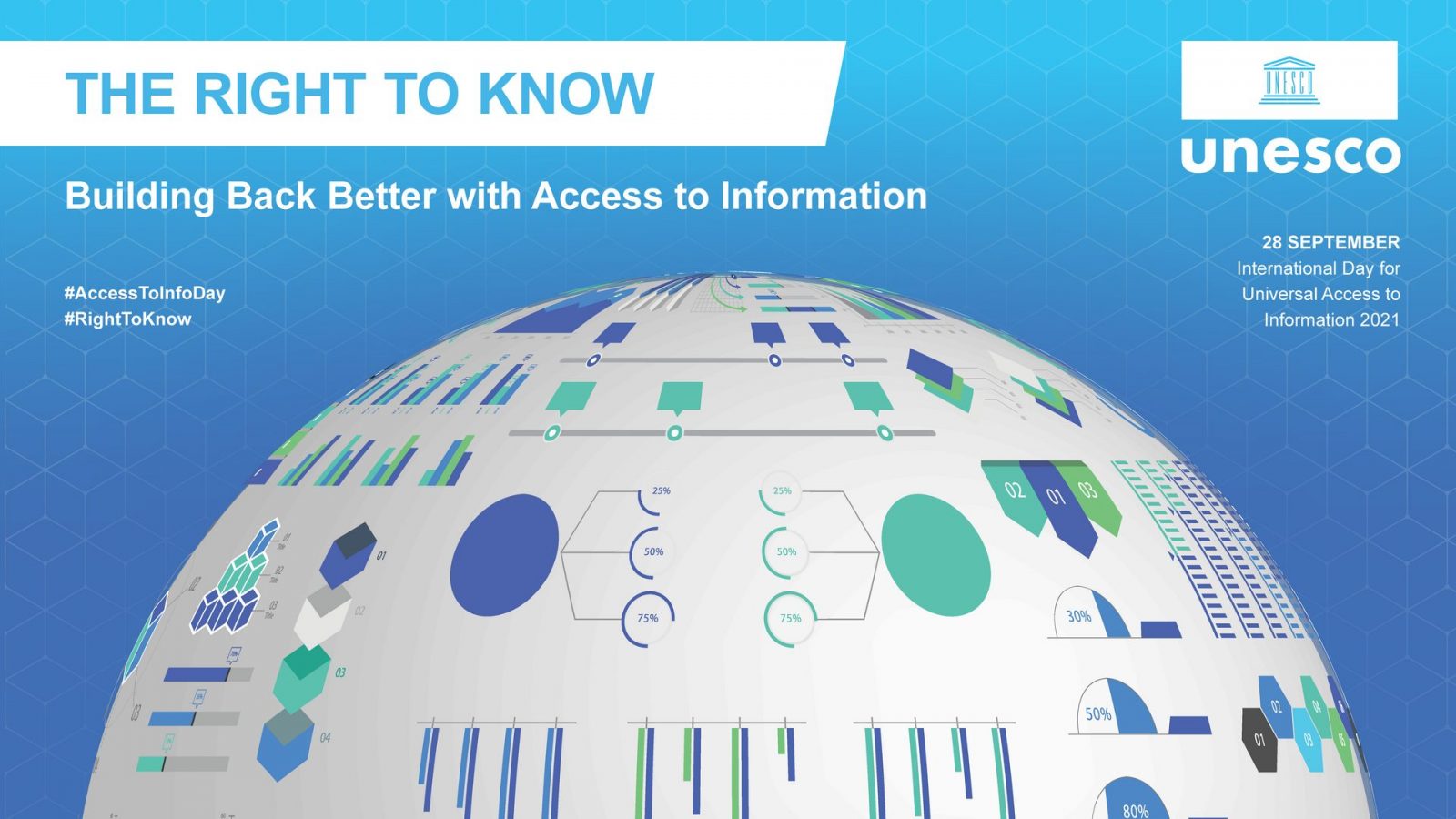2021 #AccessToInfoDay – a clarion call to pursue sustainable pathways for access to information

Image Credit: UNESCO
SEPTEMBER 28, 2021
Access to information is the key to sustainable development. When a people do not have access to information, opportunities for better, transformed lives are lost. Most importantly, access to information is understood to be an inalienable part of human right. Since 2015, the United Nations has set aside September 28th as a day to create awareness about the importance of ensuring that all have access to information for education, research, business activities and other forms of engagements including seeking a better life.
The theme for the 2021 International Day for Universal Access to Information is – ‘The right to know: building back better with access to Information’. This is a clarion call for action signifying that access to information for ALL is a clear pathway for thriving in the new normal.
Universal access to information has become most critical as teaching, learning and all forms of communication migrate online due to the COVID-19 crisis. This makes access to information take on other hues especially for communities and individuals in Africa without access to electricity and infrastructure for accessing the Internet. For children in urban areas but with unlettered parents and/or those who could not afford Internet-enabled devices and data costs lose out as school assignments or may be sent online when they are restrictions to movement due to COVID-19 and other internal factors in some countries.
Throw into the mix the fact that Africa with below global average literacy rate is also home to the largest number of out-of-school children. These handicaps naturally form barriers to accessing information for quality education and hinders inclusivity while deepening the divide between the haves and have-nots thus, defeating the undergirding principle of the UN Sustainable Development Goals; ‘Leaving no one behind’. Beyond Children and young adults in the school system, lack of public digital infrastructure and digital skills is a huge barrier to universal access to information for many in Africa.
How can this be tackled? How can basic digital skills be taught alongside with literacy skills? How can access to information be equitably provided to bridge gaps that could cause conflicts and breed social unrest if allowed to persist?
Libraries of all types serve different user communities and provide not just access to information for education, research, business opportunities and leisure but also assist their users develop some level of dexterity in navigating online spaces safely for information.
The African Library and Information Associations and Institutions (AfLIA) is continuously building the capacity of librarians in various areas to enable them rise up to the challenges of providing access to information in the new normal. The training programs are not only targeted at inculcating the needed digital skills for driving greater access to information, AfLIA is also working rigorously at changing mindsets of librarians and information workers to see beyond the resources and facilities in their libraries and move further into providing information services that embrace the concept of Openness to ensure holistic transfer of knowledge because everyone has the right to know.
As the world marks this important day, AfLIA will like to remind all stakeholders in the library and information sector of Africa that our duties directly and indirectly contribute to building strong communities and institutions for the public good and sustainable development, and occasions such as today’s should encourage us to continue striving towards the goal – information for all.
Happy International Day for Universal Access to Information!!
